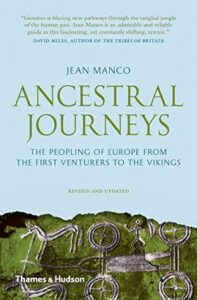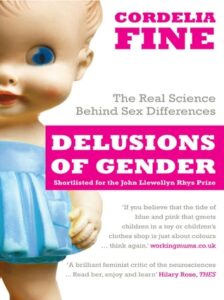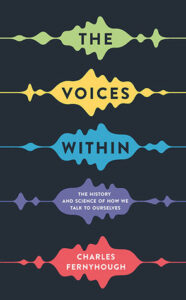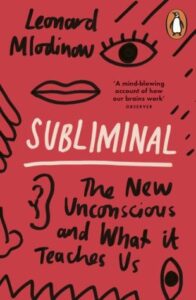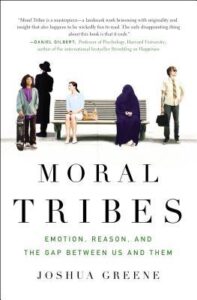 Moral Tribes, Joshua Greene
Moral Tribes, Joshua Greene
Essentially, this book is about getting past partisan divides and trying to find some kind of objective overarching morality that everyone can apply and understand, a “metamorality”. For Greene, the answer is very clearly utilitarianism, and he makes a spirited defence of that point, countering many of the standard objections to utilitarianism and clearing away the misconceptions. He starts by defining the problem, of course: discussing how we make moral decisions, using trolley problems (“trolleyology”) as the “fruit fly” of morality experiments.
He talks about ideas you’ve probably read elsewhere, sounding very much like Jonathan Haidt’s “rational tail wagging the emotional dog”, and talks about the basis of this in the human brain. There’s a lot of unpicking of why we have two levels of response to moral situations, and when each one comes into play, which is fascinating in itself, but not new to me. The defence of utilitarianism was, for me, the important part of the book. I’ve always had a bit of a kneejerk reaction against it, and Greene does a good job of dissecting why that happens, and countering that perception.
He also has some very good discussion of how to balance the ultimate aims of utilitarianism with being a fallible human being with emotional wants that feel like needs (even in cases where they’re not).
Overall, worth the read, and I do think he has a good solution here for a system of metamorality that isn’t perfect (he doesn’t seem to think a perfect metamorality exists or is possible), but can be applied and understood by everyone, and which serves our needs for 99.999% of our problems in the real world.

